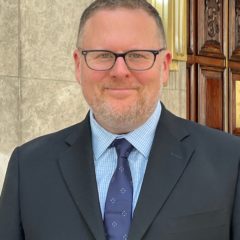“Why don’t they just do it!?!?” an exasperated colleague exclaimed.
My colleague was questioning why we don’t instantly create a culture that is more collaborative between lay leaders and staff at our synagogue. Her frustration erupted during a multi-part training series we were running to enhance our staff’s ability to create dynamic teams of lay, clergy, and staff.
I was so curious. Yeah, why don’t we just do it? Everyone is saying they want partnerships which are purpose driven, with clear goals and deadlines, and powered by deep relationships. But culture is thick and not easily churned. And many staff and lay leaders are saying they do not always feel equipped to “just do it”.
A Peacock’s Head Served in Milk
In the first meeting of a new Internal Culture Team a couple weeks ago we studied the Talmudic text taught to me by Rabbi Dr. Aaron Panken z”l, which tells the story of Levi who visits Yosef the Fowler and - to his great surprise - is served a peacock’s head cooked in milk.
When Levi returns home, none other than Rabbi Yehuda Ha Nasi questions why Levi did not excommunicate Yosef. Levi explains that Yosef was following the ruling of a different rabbi who interpreted the biblical mandate not to cook a young male goat “in its mother’s milk” (Exodus 23:19) as excluding birds, as birds do not produce milk. (Babylonian Talmud, Chullin 116a:9-16)
While the Rabbis do not follow the practices of Yosef the Fowler’s rabbi, they capture and record it as a minority opinion and recognize the authority and power of culture or local custom, or minhag hamakom.
The Power of Culture
Emerging from COVID, with more congregants in the building and staff working more frequently from the office, there is a strong appetite to reconnect and collaborate. There is a yearning to do more and be more.
We realized that, to shift our culture, we needed to expand the training of staff to include lay leaders as well. In partnership with lay leaders, we launched Chazak (“strong”), designed to be a Jewishly rooted, immersive and interactive training experience for chairs of committees and emergent leaders to strengthen their leadership, enhance their ability to lead teams, identify and develop other leaders, and to be skillful partners with staff and other organizations.
One of the lay co-chairs of Chazak reflected on the experience of being in a more collaborative space: “It is very familiar, yet feels a millions years ago since we had it.” Another, a past-president, remarked that it ebbs and flows, depending on staff and lay leadership and the crisis of the moment.
To our delight, twenty-two leaders, from teens to 70 and better, signed up for Chazak, our three-part, twelve-hour immersive training program.
Each year, at the conclusion of chanting the five books of Torah, we pause to chant Chazak chazak v'nitchazek, which might be interpreted as “Be strong, hold fast, and let us strengthen one another.” The aspiration for our training effort is to shift the culture around committee work so that we individually feel strengthened, we strengthen each other, and the community is strengthened. Wish us luck!

Get to know the author
Benjamin Ross (WGF/DS 24) is a dad, rabbi, and ramen lover. He lives in White Plains, NY, and is the Director of Adult Engagement at Temple Shaaray Tefila in New York City. He consults with rabbis and organizations around the country focused on building teams, leadership development and spiritual formation.

